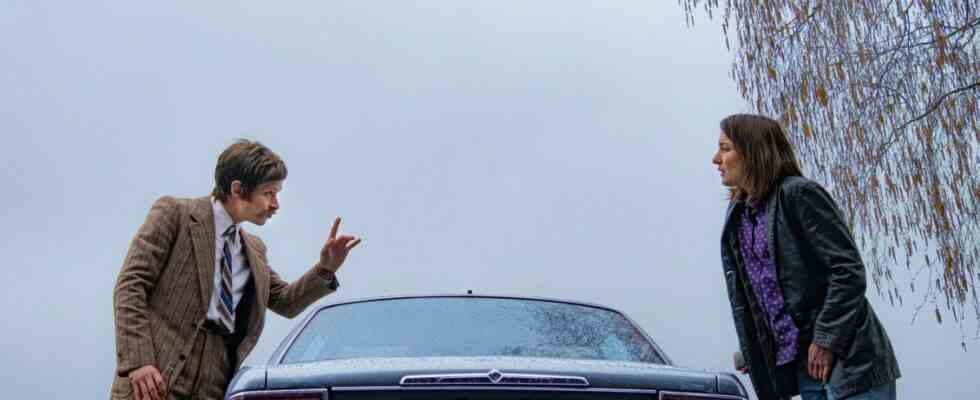He has been called the “escape king”: Walter Stürm, a Swiss criminal, has repeatedly been imprisoned for his crimes, but mostly got out again – on his own initiative, without the approval of the judiciary. Director Oliver Rihs has now turned this wild life into a film – clearly fictionalized: “Until we’re dead or free”.
In it, Walter Stürm becomes a character you really take an interest in. He’s smart, lonely, amusing in his demeanor, a master of disguise, which often consists of an ill-fitting businessman’s costume. That in itself is pretty funny, his dialogues no less, Stürm, played by Joel Basman, is almost the only one who is allowed to have humor in this film.
Switzerland reacts harshly to rebellion – the urge for freedom grows
Rihs doesn’t turn the story into a genre film that tells of the escape and pursuit of a gangster, but instead confronts Stürm’s actions with the zeitgeist of Switzerland. It’s 1980, young people in Zurich are taking to the streets and protesting against the system, soon there’s rioting because the system is violently fighting back. At the same time, Rihs shows an outbreak of Stürm. He jumps out of a police station window and pushes through the angry demonstrators, this time disguised as a police officer. Very bad choice in this area, but Sturm makes the best of it and steals a police car at the same time.
Among the demonstrators is the lawyer Barbara Hug (Marie Leuenberger). She is on the side of those who are being arrested. You are present at a negotiation, her young client comes from Germany, which saves her from a Swiss reformatory, but Oliver Rihs makes a grandiose show of the harshness with which the judiciary reacts to youthful rebellion.
He later returned to the repression with Stürm, who denounced the inhumane conditions in prison until the young people of Zurich included the topic in their demo catalog at some point. By then, the lawyer Hug had also met the escapee Stürm, had helped him escape across the border into the Federal Republic of Germany and housed him in a revolutionary cell’s hiding place.
There, politics mixes with crime, the thief who breaks into safes without ideology or clears out jewelry shops meets the armed resistance. The film falls into revolutionary clichés, everyone is hysterical or paranoid, only Walter Stürm retains his nonchalance. What is nice, however, is how both sides take advantage of each other, one wants weapons, the other wants protection.
Everyone promises everyone what they want to hear, completely regardless of reality. After that, Rihs tries for a long time to keep everyone involved in the game, instead of staying close to Stürm, with whom one would much rather spend the time than with the exceptionally stupid portrayed German terrorists. The combination of opposites doesn’t add to the suspense of the story, but allows it to drift apart.
Still, there’s plenty of storming to be seen, including another audacious prison break and preparation, and once Rihs leans into genre cinema, you can feel the pull that can develop. Ultimately, Barbara Hug and her Zurich collective of lawyers turn the escape king into a figurehead for a movement calling for prison reforms.
Stürm becomes the driving force behind the street protests, whether he personally likes it or not, whether this publicity puts him in danger or not. As the title suggests, the film deals with freedom of movement and freedom of spirit, showing how people fought for it in the early 1980s. But what’s clever is that he also points out how the freedom fighters blithely serve their own interests at the expense of others.
Until we’re dead or free, Switzerland/D 2021 – Director: Oliver Rihs. Camera: Felix von Muralt. With: Joel Basman, Marie Leuenberger, Jella Haase. Distribution: Port au Prince Film, 118 minutes. Theatrical release: March 31, 2022.

